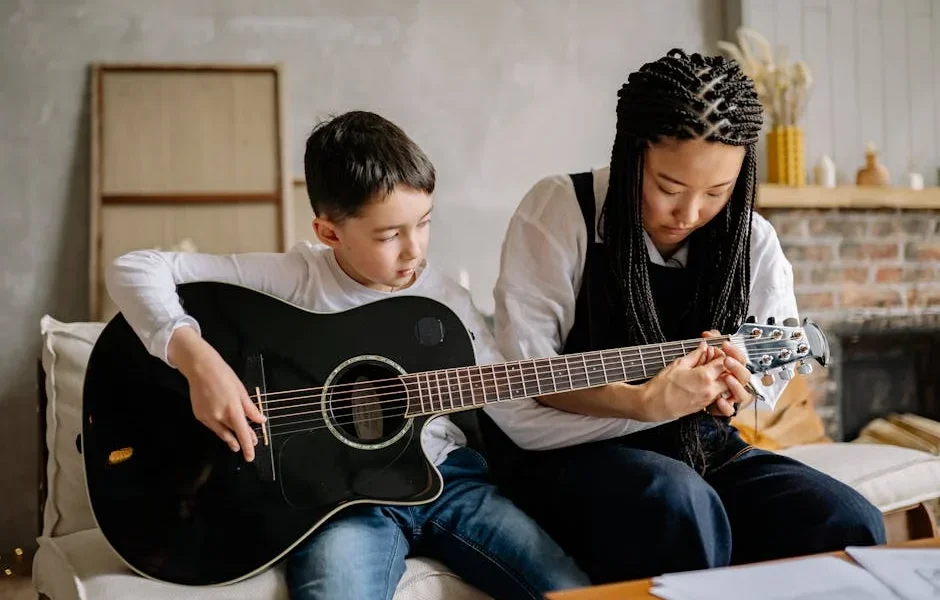The Benefits of Music Education for Children
Music education offers a wide array of benefits, particularly for young learners who are in the developmental stages of their lives. Engaging with music from an early age can dramatically enhance children’s cognitive abilities. These skills go beyond the ability to read notes and play an instrument; they translate into improved performance in other academic areas, such as math and science.
Moreover, music is more than just skill acquisition; it’s about cultivating a sharper mind to tackle complex problem-solving tasks. By integrating these resources into their teaching strategies, educators can make a lasting impact on their students’ cognitive and emotional development.
Enhancing Creativity and Discipline Through Music
Creativity is a highly prized attribute that can be fostered through music education. Children learning music are encouraged to express themselves uniquely and innovatively, engaging with different rhythms, melodies, and harmonies. This artistic freedom promotes creative thinking, which is highly transferable to other areas of life. In addition, the discipline required to learn an instrument or perfect a piece of music cannot be understated. Regular practice fosters a strong work ethic and time management skills—valuable life skills that encourage students to approach tasks with focus and determination. For educators, there are numerous music resources for teachers that provide helpful tools to make music education effective and engaging.
By engaging in structured practice, young musicians learn the importance of persistence and dedication, which are crucial for achieving success in academic and personal pursuits. The consistent feedback loop found in music study—practice, performance, critique, and improvement—teaches children resilience and the rewarding nature of hard work.
Music’s Role in Social Development
Music is not just a solitary endeavor; it’s a communal activity that builds and strengthens social bonds. Participating in music groups, such as ensembles, bands, or choirs, teaches children important lessons about collaboration and teamwork. Through the shared experience of making music, children learn to listen to others, communicate effectively, and understand the significance of each individual’s contribution to a collective performance. According to cognitive benefit studies, students exposed to music education tend to develop better memory capacity and superior language and reasoning skills.
The social interactions experienced in these settings also foster empathy and cultural appreciation. As children learn to play traditional pieces from different backgrounds, they understand the world around them more. This enriched perspective is key to developing social skills for personal growth and future success in a diverse and interconnected world.
Expanding Access to Music Education Resources
The modern age offers a wealth of accessible resources that have democratized music education like never before, making it possible for students from various backgrounds to engage with music. With online tutorials, educational apps, and virtual lessons, music education is no longer confined to the traditional classroom or lesson setting. Students can now learn at their own pace, making music an accessible pursuit for everyone.
Furthermore, these resources empower teachers with many tools to create engaging and diversified curricula. Teachers can tailor their approaches emiliepturner to cater to different learning styles, ensuring every child can experience the joy and benefits of music education. Such resources are invaluable in reaching students who may not have had access to traditional music education due to socioeconomic or geographical limitations.
Inclusivity in Music Education
Inclusivity is a vital element in creating enriching music education experiences. By celebrating and incorporating diverse musical traditions and cultures, music programs create a vibrant and inclusive atmosphere where all students feel valued and inspired. Ensuring that music education is available to all students, including those from underserved communities, is crucial in fostering a society that values creativity and cultural literacy.
Emphasizing diversity in music education not only enriches students’ learning experience but also prepares them to thrive in a global society. The varied perspectives and traditions encountered in inclusive music programs teach students to appreciate and respect differences, promoting a more harmonious and empathetic world.
Real-World Applications of Music Education
Many successful individuals attribute their achievements to skills honed through music education. The discipline, creativity, and critical thinking skills developed through music study apply to countless professional fields. Whether in business, medicine, or technology, the cognitive and emotional skills derived from music education are invaluable and often differentiate individuals in competitive environments.
The ability to solve problems creatively, work collaboratively, and communicate effectively—qualities nurtured through music—is vital in any career. Music education thus provides a strong foundation for personal fulfillment and significant professional accomplishments, making it an essential component of a well-rounded education.
Future of Music Education
The future of music education is bright and full of potential. With continuous technological advancements, new tools, and digital instruments are being developed to make learning music more interactive and engaging. These innovations promise to break past the traditional limitations of music education, allowing students to connect with music in more dynamic ways.
As these technologies become more widely integrated into educational practices, students and educators alike can look forward to a more immersive music learning experience, one that is tailored to individual needs and aspirations. This evolving landscape heralds an exciting era for music education, ensuring that future generations continue to reap its many benefits.
